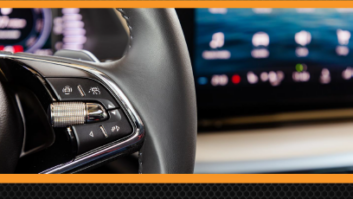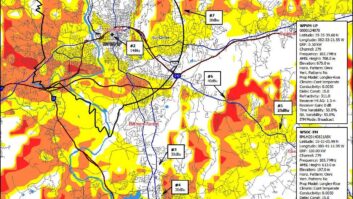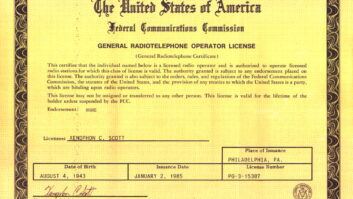Here are more letters to the editor of Radio World. You can send yours to [email protected].
It’s Just Too Late to Save AM in Cars
It has been with great interest that I’ve read about carmakers dropping AM reception capability in new cars, particularly EVs, and about the introduction of the “AM for Every Vehicle” Act.
The reason most often cited by makers of electric vehicles is interference from on-board systems to AM band reception. The truth is we have ourselves to blame.
The assault on AM band purity predates the popularity of electric vehicles by decades. The onslaught of cheap switching power supplies in consumer electronics, RF noise-producing computers and personal devices, and the absolute lack of any care given to protecting the spectrum are incompatible with AM quality.
For far too long, consumers, manufacturers, the NAB and even the FCC did not fight to protect the band. It seemed nobody cared whether new fluorescent lights (remember those?) caused so much noise that they even affected reception in neighbors’ homes. Nobody took up the fight to keep the band clean and make noise-free AM reception even somewhat possible in high-density housing areas. Nobody seemed appalled at this complete disregard for the usefulness of the band in the future.
Now comes legislation that would create an AM mandate for cars. But it relies on the same tired, lame excuse that the AM band is somehow going to be the only thing that stands between the public and certain death in some emergency scenario.
Sen. Ed Markey has said, “Broadcast AM radio is an essential part of our emergency alert infrastructure, but … far too many automakers are ignoring the critical safety benefits of AM radio.”
That statement was somewhat true 30 years ago, my friend. Nope, you’re too late. The genie was let out of the bottle and now you can’t get it back in, no matter what. The time to ensure that the AM band remained a player in future cars was decades before the cars of the future were created. Fail.
— Paul Shinn, Sonora, Calif.
A Matter of Commitment
Losing AM radio in cars is on par with the evaporation of small-town newspapers across the country.
Considering the radio monopolies created with the 1996 Telecommunications Act, we should be looking at this not as losing AM, but losing dozens of radio frequencies once available, and the “marketplace of ideas” fading away.
AM radio fidelity is wanting, but tech improvements are possible. It is a question of priorities, and the iHeartRadio types do not care, owning hundreds of stations. Thanks, Bill Clinton, for signing that horrendous law and allowing this nightmare to unfold.
If we lose AM, corporate radio should lose a corresponding number of remaining FM radio frequencies to small-time (“mom and pop”) owners. Congress could take such action, but don’t hold your breath.
Remembering how WBZ (when it was a music station) used to unleash new and exciting sounds on AM radio before the FM revolution came about, AM could do that all over again. It just takes commitment.
— Pete Simon
Unhappy With HD
As reported by Radio World, Xperi issued a press release recently based on survey data from more than 2,900 U.S. car owners and leaders (“Xperi Survey Crowns AM, FM Radio as Most-Used In-Car Feature”).
Sure, folks still listen to the radio in cars. I have to point out that the survey did not detail how many reported only listening to analog and not HD Radio stations. Don’t you think that question was also asked, but the results might have been omitted from the press release because they didn’t fit the narrative the guys at Xperi have been spreading about a high level of HD-capable radios in the new cars?
Listeners don’t care about HD service from stations that play too many commercials and pick the wrong songs to play based on money and not good music. They would be upset if they knew how the HD signal was jamming many smaller adjacent stations. It is past time for this jamming signal to be shut off or at least make them put it on their own channel and not on the top of two other stations’ channels.
— Brad Johnson, Modesto, Calif.
[Check Out More Letters at Radio World’s Reader’s Forum Section]





